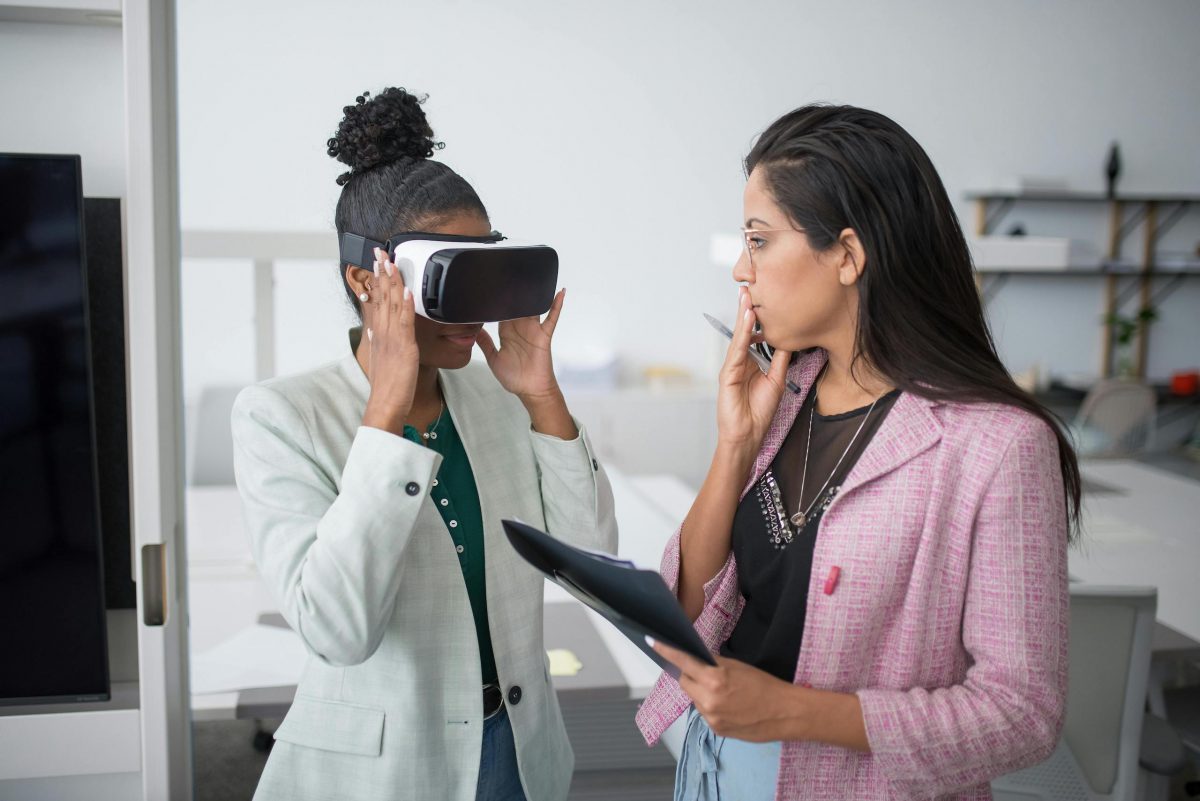The future of work will look very different from the working world we know today. Many of the children in school right now will go on to work in roles that don’t yet exist.
It was the same for many millennials in the early 2000s. Content marketing didn’t exist back then when I dreamed of being a writer, for example.
The speed of technological advancement means that new roles are going to emerge. At the same time, old ones will die off, and the future of work will be unrecognizable.
Businesses therefore need to change and adapt to stay fresh, attract younger candidates who are digital natives, support knowledge transfer between employees, and continue to provide a positive employee experience.
What trends do you need to keep in mind to optimize your employee experience for the future of work? Here are our picks:
Green energy transition
The green energy transition will make millions of jobs obsolete. But it’s also going to create far more jobs than it eliminates.
To support employees through this transition, you need to invest in training initiatives. This will help them adapt their existing, potentially beneficial, skills.
While different countries will shift to green energy at different rates, green energy isn’t going anywhere. It will change both the future of work and life.
It will also create new roles, such as how we now have mechanics who specialize in electric vehicles.
AI
Many employees are worried about AI coming for their jobs in the future of work. It’s therefore important that businesses explain where they stand on AI, how they intend to use it, and how they want employees to use it. It isn’t going anywhere and it’s likely to become even more embedded in our lives.
AI can play a role in improving employee experience by helping with things like streamlining repetitive tasks, analyzing data, assessing job candidates, conducting interviews, etc.
Offloading these tasks to AI saves teams time and energy. That way they have more to spend on human interactions. Which further improves your employee experience by allowing for more personalized (and potentially longer) interactions between colleagues.
Return to office
The return to office trend has continued recently, with more big companies insisting employees are better off being at a desk in an office for the duration of the working day.
While being in an office has its benefits, it’s also very limiting. It restricts where you can hire from to a certain radius. Which means you risk hiring people from similar economic and cultural backgrounds. As a result, you get less innovation and creativity due to a decrease in diversity.
Over the next few years, up to a quarter of workforces in advanced economies could end up working remotely between three and five days a week. This is four to five times more remote work than before the pandemic. In terms of accessibility, this is huge. But, given recent company rollbacks on remote work, I am skeptical of this future of work stat.
Make remote work work for you
If you want to make your remote work culture a success, you need to invest in the right tools. That’s true both today, and in preparing for the future of work.
Workrowd helps you connect with your employees. Everything they need from files to upcoming events to employee groups and programs is kept in one place so that they always know what’s going on. Get in touch today to find out more.
Gen Z
Gen Z is now firmly a part of the working world. As one of the largest and the most diverse generation ever—and the first of digital natives—they’re bound to impact the future of work.
Businesses need to consider how they can set these young people up for success.
While Gen Z will need to adapt from education to the world of work, the world of work also needs to adapt to the new ways of thinking Gen Z brings. They’re not all about work work work. They want a life outside of their job and they’re not all that interested in traditional career paths.
Instead, they want purpose-led work with good pay and work-life balance. Is that too much to ask for? We’ll have to wait and see.
How companies accommodate Gen Z’s way of wanting to work will be a significant differentiator. It may be the difference between companies successfully adapting to the future of work and being left behind.
DEIA (diversity, equity, inclusion, and accessibility)
It’s estimated that as much as 40% of US GDP growth between 1960 and 2010 was because of an increase in women and people of color in the workplace. If businesses want to continue growing, they need to continue to embrace diversity.
DEIA decreases the likelihood that companies will fall into groupthink which reduces internal innovation and problem-solving skills.
Remote work, flexible hours, adaptable office equipment, and accommodations like sending meeting agendas in advance are simple ways that businesses can support employees with different needs.
Sharing the types of adaptations they offer will also become a key differentiator to a company’s employer brand in the future of work.
Honesty and integrity
As more companies become opaque (and social media stops fact-checking) it will become increasingly important for employers to make their organizational values clear.
Employees want to know what their employer stands for and that they’re on the same side. They can only work that out if their employer is open and honest about what matters to them. And about what’s happening in the business.
Failing to be open and honest is likely to lead to even more uncertainty in an already uncertain world. Which could impact your engagement, retention, and hiring efforts in the future of work.
Company purpose
Purpose is a key driver for younger employees who are motivated by feeling like they make a difference in the world.
Making your company values clear to people inside and outside of your organization helps attract the right types of hires. It also ensures values stay at the forefront of their mind when they join.
For instance, if a value is that employees can “disagree agreeably” they should be able to have a healthy discussion about a project. Then when that’s over, continue to respect and listen to each other even if one of them didn’t get what they wanted.
Knowledge transfer
With so much happening right now, and so many employees retiring or not sticking around as long as their predecessors, knowledge transfer will be vital to business success in the future of work.
Not only will it ensure that knowledge doesn’t leave with an employee, but it will also help to retain employees by offering them more training opportunities.
Things like employee groups and mentoring can ensure that just because someone leaves, the strategies and tools that they used don’t have to leave with them.
Conclusion
The future of work will affect every level of business, from senior leadership right down to recent graduates and apprentices. The pace at which it approaches will only continue to grow, too.
How businesses adapt to these changes will have a huge role in their ability to survive and thrive in the future of work.
Ready to future-proof your employee experience? Workrowd’s all-in-one suite of tools can help.
Find out how an automated hub for everything employee engagement ensures your success no matter what the future holds. Drop us a note to see how our platform can help you reach and exceed your future of work goals.





